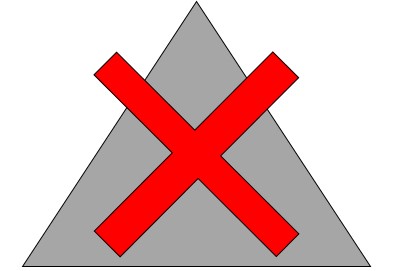Consumer Protection from Unfair Trading Regulations 2008 CPRs

|
Contents |
[edit] Introduction
The Consumer Protection from Unfair Trading Regulations 2008 (known as the CPRs) were introduced to control unfair practices used by traders when dealing with consumers and to create criminal offences for traders that breach them.
[edit] History
The CPRs were adopted in May 2008. They replaced most of the regulations included in the Trade Descriptions Act 1968 (TDA). The CPRs were intended to protect consumers by making businesses take responsibility for their unfair trading practices. Under the CPRs, businesses include trades, crafts, professions and the activities of any government department, local or public authority.
In addition to the CPRs, the Business Protection from Misleading Marketing Regulations 2008 (BPRs) were adopted to address fair practice activities in business-to-business advertising including conditions related to comparative advertisements.
[edit] Scope of coverage
The CPRs are grouped into four general areas, including three actions that would be deemed unfair if they caused consumers to follow a different course of purchasing action. These are:
- Actions and omissions that could be deemed as misleading.
- Practices that would be labelled as aggressive.
- Actions that would be generally considered unfair or contrary to professional responsibilities.
The fourth CPR area covers 31 practices prohibited under any circumstances. These can be grouped into several general categories, including:
- False endorsements or authorisations.
- Inertia sales (sending unsolicited goods to potential customers to make a sale).
- Making unreasonable demands.
- Misleading availability.
- Misleading context or effect.
- Overly aggressive sales.
- Pyramid schemes.
- Prize draws.
Guidance offered through Consumer Protection from Unfair Trading describes all 31 specific prohibited practices in detail.
[edit] Identifying different types of customers
The CPRs recognise that it is possible for different types of consumers to respond to trading practices differently, and it has designated these types as:
- Average consumers. These customers are reasonably well informed, observant and circumspect.
- Targeted consumers. These customers have been selected based on the likelihood of their interest in a specific product or service.
- Vulnerable consumers. These customers may be part of a physical or mental demographic that makes them susceptible to unethical trading practices.
[edit] Related articles on Designing Buildings
- Competition and Markets Authority CMA.
- Consumer.
- Consumer Council for Water CCWater.
- Consumer Rights Act.
- Green Claims Code.
- Greenwashing.
- Guarantees.
[edit] External resources
- Legislation.gov.uk, The Consumer Protection from Unfair Trading Regulations 2008.
- Office of Fair Trading, Consumer Protection from Unfair Trading.
Featured articles and news
A case study and a warning to would-be developers
Creating four dwellings... after half a century of doing this job, why, oh why, is it so difficult?
Reform of the fire engineering profession
Fire Engineers Advisory Panel: Authoritative Statement, reactions and next steps.
Restoration and renewal of the Palace of Westminster
A complex project of cultural significance from full decant to EMI, opportunities and a potential a way forward.
Apprenticeships and the responsibility we share
Perspectives from the CIOB President as National Apprentice Week comes to a close.
The first line of defence against rain, wind and snow.
Building Safety recap January, 2026
What we missed at the end of last year, and at the start of this...
National Apprenticeship Week 2026, 9-15 Feb
Shining a light on the positive impacts for businesses, their apprentices and the wider economy alike.
Applications and benefits of acoustic flooring
From commercial to retail.
From solid to sprung and ribbed to raised.
Strengthening industry collaboration in Hong Kong
Hong Kong Institute of Construction and The Chartered Institute of Building sign Memorandum of Understanding.
A detailed description from the experts at Cornish Lime.
IHBC planning for growth with corporate plan development
Grow with the Institute by volunteering and CP25 consultation.
Connecting ambition and action for designers and specifiers.
Electrical skills gap deepens as apprenticeship starts fall despite surging demand says ECA.
Built environment bodies deepen joint action on EDI
B.E.Inclusive initiative agree next phase of joint equity, diversity and inclusion (EDI) action plan.
Recognising culture as key to sustainable economic growth
Creative UK Provocation paper: Culture as Growth Infrastructure.





















